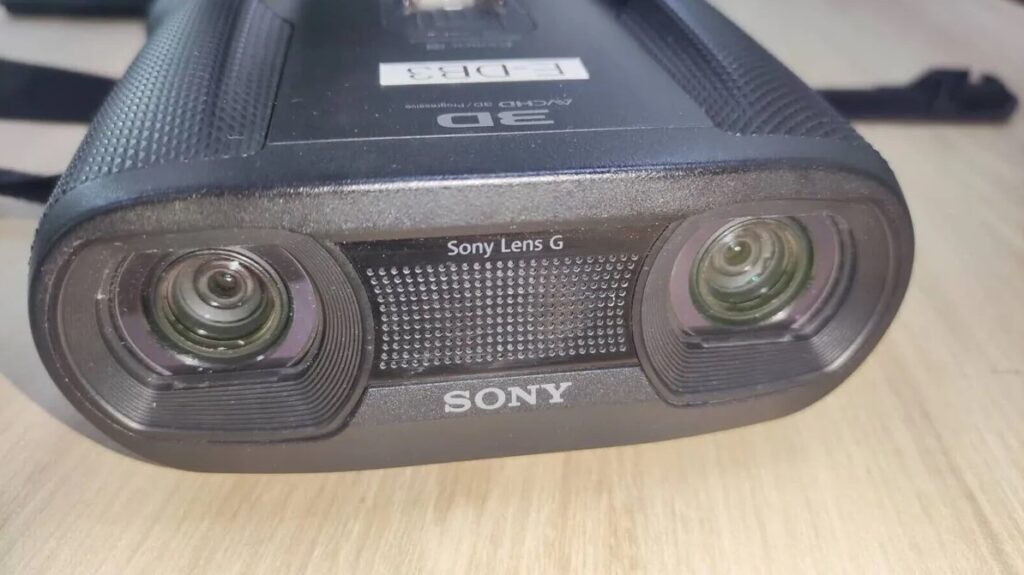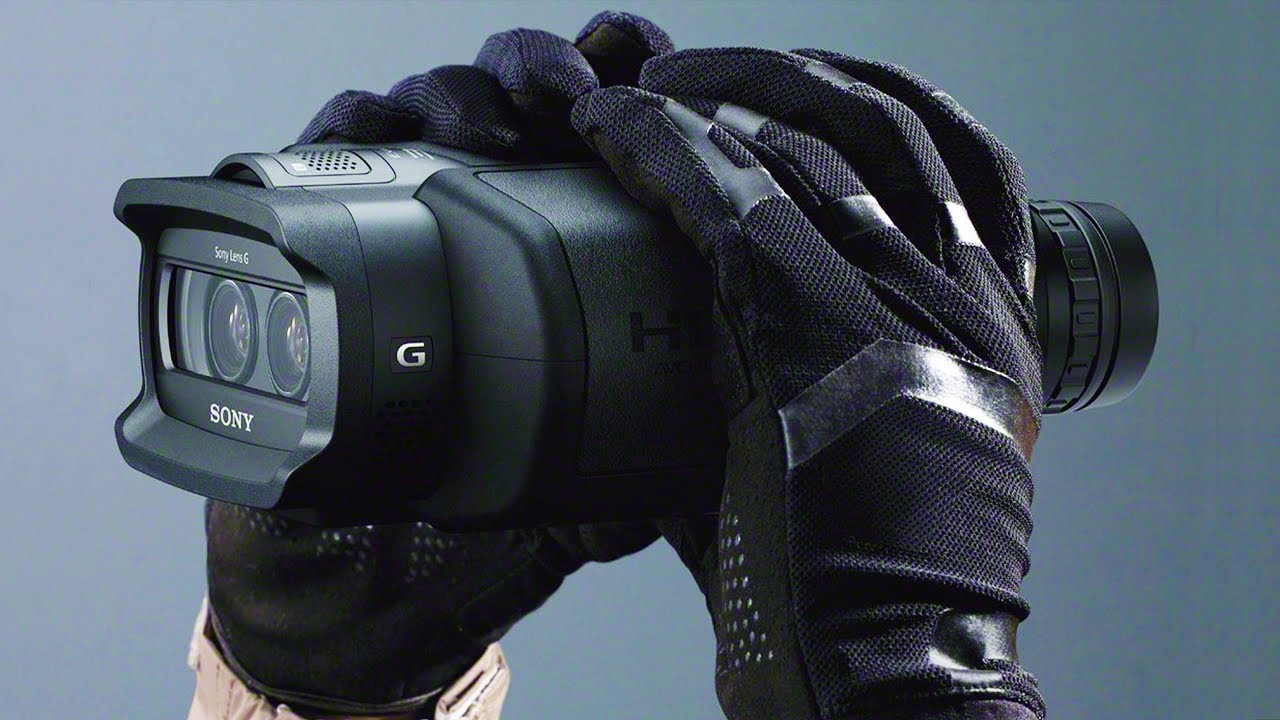Contents
Binoculars have been a quintessential tool for outdoor enthusiasts, sports fans, and nature lovers for centuries, enabling us to explore and marvel at the world from a distance. With advancements in technology, a new breed of binoculars has emerged—digital zoom binoculars.
Digital zoom binoculars are a type of binoculars that allow users to zoom in and out on a subject using a digital zoom feature. In this article, we will explore the pros, cons, and applications of digital zoom binoculars.
In this article, we delve into the world of digital zoom binoculars, uncovering their pros, cons, and the diverse realms in which they find their applications.
Digital Zoom Binoculars
Digital zoom binoculars build on the principles of traditional binoculars, which rely on a combination of optical lenses and prisms to magnify distant objects. However, what sets them apart is the integration of digital camera technology. These binoculars feature an electronic image sensor similar to the ones found in digital cameras.

The light passing through the lenses is converted into a digital signal, which can then be digitally processed and magnified further, providing users with a heightened level of zoom not achievable through traditional optics alone.
Digital Zoom — Pros
- One of the main advantages of digital zoom binoculars is their versatility.
- With a continuously variable magnification, users can instantly change from low to mid to high power with the flick of their fingertip.
- This is especially useful in long-range viewing situations such as wetlands, during raptor migration watches, on boats, and from lots of other non-birding activities such as sporting events or concerts.
- Additionally, digital zoom binoculars often come with features such as autofocus, image stabilization, and the ability to record video and take photos.
#1: Enhanced Magnification:
The most significant advantage of digital zoom binoculars is their ability to achieve higher levels of magnification than traditional binoculars. Users can zoom in on distant objects and capture finer details, making them ideal for observing wildlife, birdwatching, or capturing sporting events from a distance.
#2: Image Stabilization:
One of the challenges of high magnification is maintaining a steady image, especially when holding binoculars by hand. Digital zoom binoculars often come equipped with image stabilization technology, which reduces shake and jitter, resulting in clearer, sharper images.
#3: Versatility and Convenience:
Digital zoom binoculars are designed with convenience in mind. They are compact, lightweight, and easy to carry around, making them suitable for travel, hiking, and other outdoor activities. Their user-friendly controls and ergonomic designs ensure a comfortable experience for all users, regardless of their expertise level.
#4: Multi-functional Capability:
Beyond their use as binoculars, digital zoom binoculars can often capture images and videos, allowing users to document their observations and experiences. Some models even come with advanced features like Wi-Fi or Bluetooth connectivity for seamless image transfer to other devices.
Digital Zoom — Cons
- One of the main disadvantages of digital zoom binoculars is the image quality.
- While they do allow users to zoom in on a subject, the images tend to be a little fuzzy in comparison to high-end fixed magnification binoculars, and they often have a smaller field of view.
- Due to the inherent design limitations of using moving elements within a zoom eyepiece, the field of view at the low end of the magnification range is going to be severely limited compared to a fixed-power binocular.
- Additionally, zoom binoculars often suffer from collimation problems due to their complex motion mechanisms that make it difficult to maintain perfect synchronization, further reducing image quality.
#1: Image Quality Trade-off:
While digital zoom binoculars excel in magnification, there is often a trade-off in image quality. At higher levels of digital zoom, the image can suffer from pixelation, loss of sharpness, and the presence of digital artifacts. This reduction in image quality is a compromise users should consider when choosing the appropriate magnification level.
#2: Power Dependency:
Digital zoom binoculars rely on batteries to power their digital components. Extensive use of the zoom and other features can drain the battery quickly, making it necessary to carry spare batteries or power banks for prolonged outdoor activities.
#3: Price and Affordability:
The incorporation of digital camera technology and image stabilization features often makes digital zoom binoculars more expensive than traditional binoculars. For some, the additional cost may be a limiting factor in their decision-making process.
Digital Zoom — Applications
Digital zoom binoculars can be used for a variety of applications, including birdwatching, hunting, mountaineering, camping, marine navigation, surveillance, and more.

They are especially useful in situations where a user needs to view a subject from a distance, such as during a sporting event or concert. Additionally, digital zoom binoculars with camera and video capabilities can be used to take photos and record videos of subjects from a distance.
#1: Wildlife Observation:
Digital zoom binoculars are a boon for wildlife enthusiasts and birdwatchers. They allow for close-up observations of animals and birds in their natural habitats, providing an immersive experience for nature lovers and photographers.
#2: Sports and Events:
Whether you’re watching a thrilling sports match or attending a live concert, digital zoom binoculars bring you closer to the action. Capture the excitement and emotions of athletes and performers from a distance like never before.
#3: Surveillance and Security:
Security professionals, law enforcement agencies, and homeowners can utilize digital zoom binoculars for surveillance and monitoring purposes. These binoculars provide a discreet and effective way to observe targets from a safe distance.
Choosing the Right Digital Zoom Binoculars
When selecting digital zoom binoculars, consider factors such as optical quality, zoom range, image stabilization technology, battery life, and durability. Reading reviews and seeking expert advice can provide valuable insights to make an informed decision based on your specific needs and preferences.
Frequently Asked Questions (FAQs)
What are digital zoom binoculars, and how do they differ from traditional binoculars?
Digital zoom binoculars are a combination of traditional binoculars and digital camera technology. They utilize optical lenses and prisms to magnify distant objects like traditional binoculars but also integrate an electronic image sensor found in digital cameras. The digital component allows for further zooming of the captured image, beyond the limitations of optical magnification, providing enhanced zoom capabilities.
What are the main advantages of using digital zoom binoculars?
Digital zoom binoculars offer several advantages, including:
- Enhanced Magnification: Digital zoom allows users to achieve higher levels of magnification, getting closer to distant subjects or wildlife.
- Image Stabilization: Many digital zoom binoculars come equipped with image stabilization technology, reducing shake and ensuring clearer images, even at high magnification.
- Versatility and Convenience: They are compact, portable, and user-friendly, making them ideal for various outdoor activities.
- Multi-functional Capability: Some models can capture images and videos in addition to serving as binoculars, enabling users to document their observations.
Are there any downsides to using digital zoom binoculars?
Yes, there are some cons associated with digital zoom binoculars:
- Image Quality Trade-off: At higher levels of digital zoom, image quality can suffer from pixelation, loss of sharpness, and digital artifacts.
- Power Dependency: Digital zoom binoculars rely on batteries for their digital components, and extended use of zoom features can drain the battery quickly.
- Price and Affordability: Incorporating digital camera technology and image stabilization features often makes digital zoom binoculars more expensive compared to traditional binoculars.
What applications are digital zoom binoculars suitable for?
Digital zoom binoculars find applications in various areas, including:
- Wildlife Observation: Ideal for birdwatching and observing wildlife in their natural habitats, allowing users to capture detailed images and videos.
- Sports and Events: Enhance the viewing experience during sporting events and concerts by zooming in on the action and capturing memorable moments.
- Surveillance and Security: Used by security professionals, law enforcement agencies, and homeowners for discreet and effective surveillance.
How do I choose the right digital zoom binoculars for my needs?
When selecting digital zoom binoculars, consider the following factors:
- Optical Quality: Look for high-quality lenses and lens coatings for better image clarity.
- Zoom Range: Assess the zoom capabilities to ensure it meets your specific requirements.
- Image Stabilization: Check if the binoculars come with image stabilization to ensure steady images at high magnification.
- Battery Life: Consider the battery life and have backup power options for extended outdoor activities.
- Durability: Choose binoculars with robust construction and weather-resistant features for outdoor use.
Can digital zoom binoculars replace regular cameras for photography?
While digital zoom binoculars can capture images and videos, they may not fully replace dedicated cameras for photography. The image quality and versatility of traditional cameras typically exceed what digital zoom binoculars can offer. However, for specific applications like wildlife photography or capturing events from a distance, digital zoom binoculars can be a valuable tool.
Are digital zoom binoculars suitable for stargazing and astronomy?
Digital zoom binoculars can be used for stargazing and astronomy to some extent, especially for observing the moon, planets, and bright celestial objects. However, for serious astronomical observations, dedicated astronomical telescopes with higher magnification and specialized features are more suitable.
Can I use digital zoom binoculars with eyeglasses?
Some digital zoom binoculars have adjustable eye relief, which allows users to use them comfortably with eyeglasses. However, it’s essential to check the specifications of the binoculars to ensure they accommodate eyeglass wearers.
Does all digital zoom binoculars have Wi-Fi or Bluetooth connectivity?
Not all digital zoom binoculars come with Wi-Fi or Bluetooth connectivity. Connectivity features vary depending on the model and brand. If this is an essential feature for you, make sure to check the specifications before purchasing.
Can I use digital zoom binoculars for underwater activities?
Generally, digital zoom binoculars are not designed for underwater use. They may lack the necessary waterproofing and sealing to withstand immersion in water. For underwater activities, it’s best to opt for specialized waterproof binoculars or underwater cameras.
Bottom Line
In conclusion, digital zoom binoculars offer users versatility and convenience, but they come with some trade-offs in image quality. They can be useful for a variety of applications, but users should consider their specific needs and preferences before purchasing a pair.

A Binoculars enthusiast, who love exploring skies and watching birds. It is my hobby to collect Binoculars of different kinds and try to explore the world through various lenses. This is all I do to explore happiness by magnifying my beautiful world.




